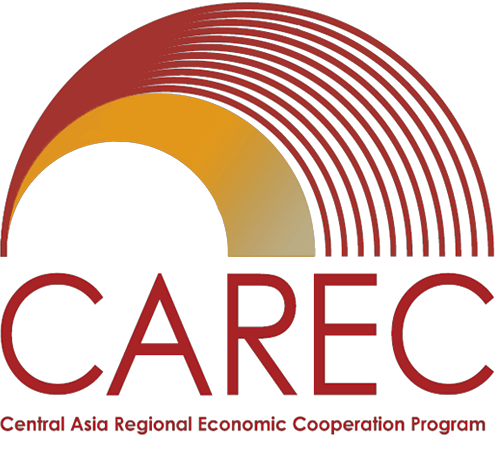Transport Development Partners
CAREC development partners in the transport sector share responsibility in providing directions and drawing up priority actions. This section provides a communication platform for development partners to present projects and transport initiatives as well as features works and achievements of development partners in the CAREC Transport program.
European Bank for Reconstruction and Development (EBRD)
The European Bank for Reconstruction and Development (EBRD) is an international financial institution founded in 1991 to promote the development of the private sector and entrepreneurial initiatives. The EBRD is owned by 71 countries as well as the European Union (EU) and the European Investment Bank. As a multilateral developmental bank, the EBRD uses investments as a tool to build market-oriented economies in 38 countries across three continents: from the Southern and Eastern Mediterranean to Central and Eastern Europe, and to Central Asia.
The EBRD gained unique expertise in fostering change in the region and making the economies competitive, inclusive, well-governed, green, resilient, and integrated, and beyond investing more than €160 billion in a total of over 6,000 projects. Its operations span a range of industries: from support to financial institutions and manufacturing to agribusiness and infrastructure, including the transport sector.
View EBRD–CAREC Connectivity, October 2020 | РУССКИЙ
View EBRD – Development Partner, February 2022
International Transport Corridor Europe–the Caucasus–Asia (TRACECA)
The International Transport Corridor Europe-the Caucasus-Asia (TRACECA) Programme was initiated by the EU in May 1993 at the Conference in Brussels with the following objectives as provided for by the Multilateral Agreement (MLA):
- Development of economic relations, trade, and transport communication in the regions of Europe, the Black Sea and the Caspian Sea, the Caucasus, and Asia.
- Ensuring international transportation of goods and passengers as well as international transport of hydrocarbons; ensuring traffic security, cargo safety, and environmental protection.
- Ensuring access to the world market of road, air, and rail transport, as well as commercial navigation; creation of equal conditions of competition for transport operations.
The Intergovernmental Commission (IGC) is the highest decision-making authority of TRACECA for the effective functioning of the corridor. The IGC consists of the highest governmental officials of the MLA Parties with the IGC chairmanship rotating every year. The Permanent Secretariat (PS) IGC TRACECA is the executive authority of the IGC, headed by the Secretary General, with headquarters in Baku, Azerbaijan and the Permanent Representations in each of the MLA Parties.
TRACECA signed a Memorandum of Understanding with the CAREC Institute in September 2018 to broaden cooperation in the exchange of experiences and resources as well as plan for joint trainings and events.
United Nations Economic and Social Commission for Asia and the Pacific (ESCAP)
The Economic and Social Commission for Asia and the Pacific (ESCAP) serves as the United Nations (UN) regional hub promoting cooperation among countries to achieve inclusive and sustainable development. The largest regional intergovernmental platform, with 53 member states and 9 associate members, ESCAP has emerged as a strong regional think tank offering countries sound analytical products on evolving economic, social, and environmental dynamics of the region.
The overall objective of ESCAP is to promote inclusive and sustainable economic and social development in the Asia and Pacific region, with priority accorded to the implementation of the 2030 Agenda for Sustainable Development and the achievement of the Sustainable Development Goals. ESCAP pursues this objective by carrying out work, in close cooperation with other UN entities and intergovernmental organizations in the region in eight areas including transport. By supporting the development of an intermodal regional network, incorporating the Asian Highway network, the Trans-Asian Railway network, and the network of Dry Ports, ESCAP works to strengthen connectivity, optimize the use of existing infrastructure, and increase the level of integration between the different transport modes
ESCAP has been an active CAREC transport development partner and contributed to several CAREC Transport Sector Coordinating Committee meetings and other events on cross-border transport, road safety, and recently, on railways. In 2015, it hosted the first technical consultation on Quadrilateral Traffic in Transit Agreement to improve transit traffic operations between the People’s Republic of China (PRC), Kazakhstan, the Kyrgyz Republic, and Pakistan. Two Railway Working Group (RWG) meetings were co-chaired by ESCAP in 2016 and 2019. In the recent RWG meeting held in Bangkok, Thailand, ESCAP shared the importance of electronic exchange of information between railways, and among railways and border agencies; as well as interoperability and streamlined border crossing arrangements.
International Road Transport Union (IRU)
The International Road Transport Union (IRU) is the world road transport organization, promoting economic growth, prosperity and safety through the sustainable mobility of people and goods. As the voice of more than 3.5 million companies operating mobility and logistics services in over 100 countries, IRU leads solutions to help the world move better.
Managed by IRU under UN mandate, TIR is the only global transit system. It enables goods to be shipped from a country of origin, through transit countries, to a country of destination in sealed load compartments that are controlled by customs via a multilateral, mutually recognized system. It is the easiest, most secure and reliable way to move goods across multiple international borders, saving time and money for transport operators and customs authorities.
TIR Convention has 77 Contracting Parties. About one million TIR carnets are issued every year across the world.
